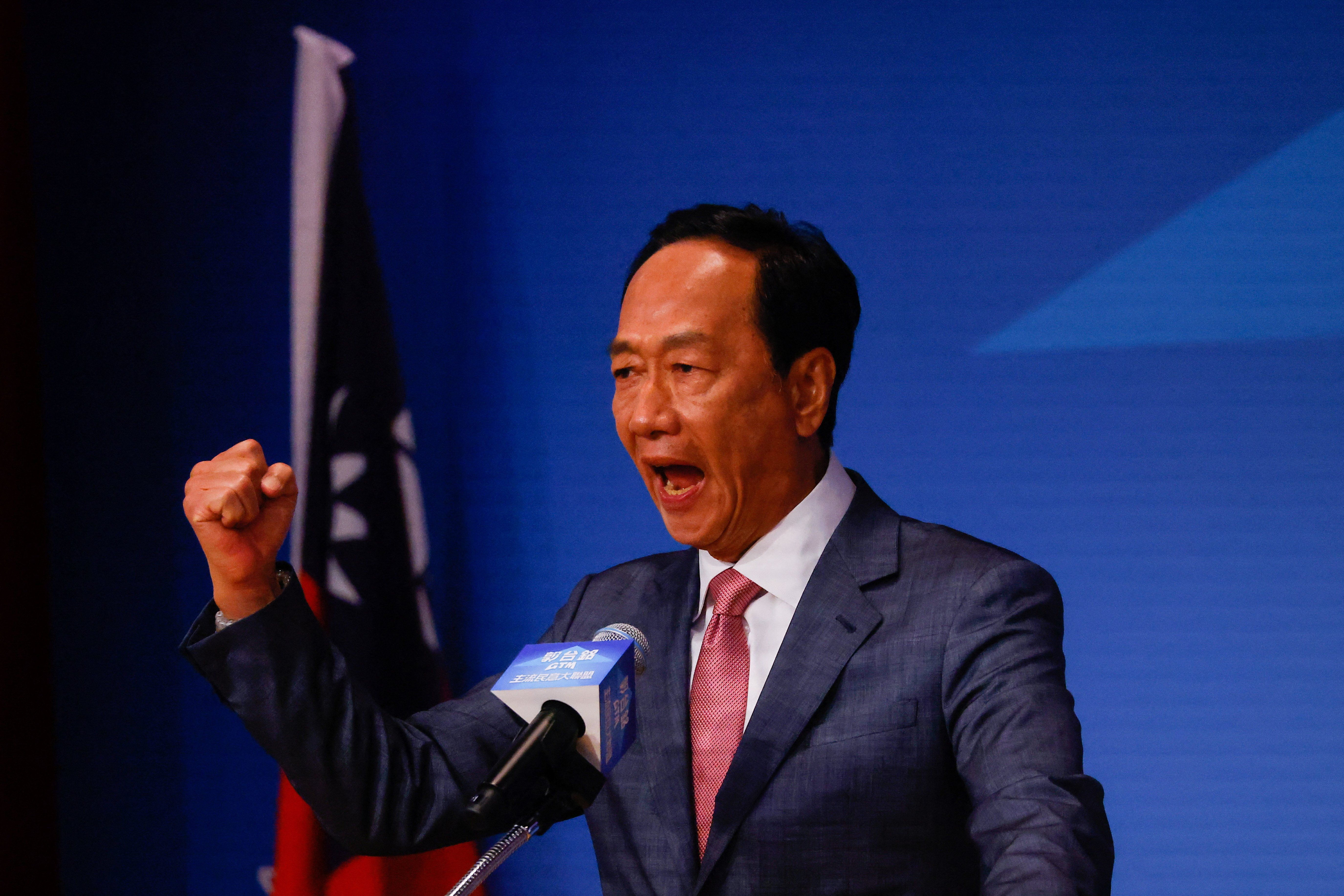Terry Gou, the billionaire founder of Foxconn, has thrown his hat in the ring for Taiwan’s presidency – making waves in an election that will have wide-ranging implications for the Western Pacific. Having failed to win the opposition party’s nomination, Gou will run as an independent focused on taking down the ruling Democratic People’s Party, which he blames for the increasingly fractious relationship between Taiwan and China.
But ironically, Gou’s candidacy makes a DPP win more likely in the January 2024 election by pulling votes away from the other two candidates hoping to beat DPP nominee, Vice President Lai Ching-te.
Gou – who is polling in last place at just 15.2% – has expressed interest in teaming up with another opposition candidate to avoid splitting votes. But Lai has a formidable lead at 33.9%, and if all three opposition candidates remain in the race, it is likely the DPP will prevail.
Gou and the other two opposition candidates support closer ties between Taiwan and China. Gou, who has called for talks under the one-China framework to reconvene, has been questioned about a potential conflict of interest because of Foxconn’s huge investments in China. Having stepped down as chairman in 2019, Gou denies that Beijing would have any leverage over him, and while he remains a substantial investor in the company, he has said he would “sacrifice” his personal assets in China in the event of an attack on Taiwan.
The DPP, meanwhile, champions Taiwan’s autonomy from China, much to Beijing’s disdain. To rile up pro-China voters, Beijing has threatened that a win by Lai could lead to military action, a warning that opposition candidates point to as evidence that the DPP is responsible for rising tensions with Beijing.
